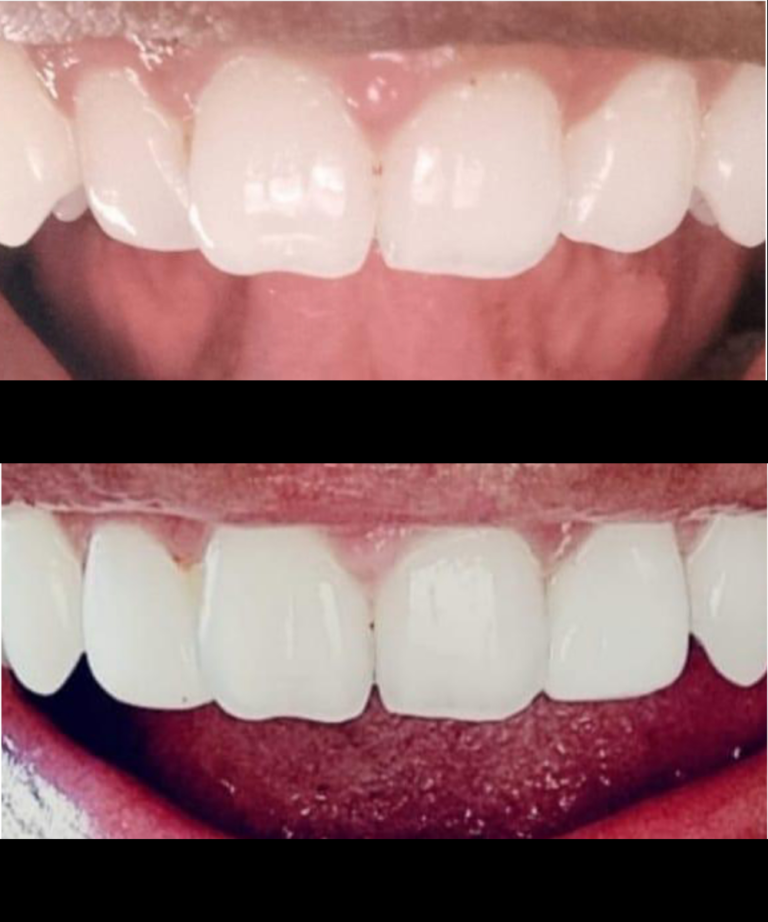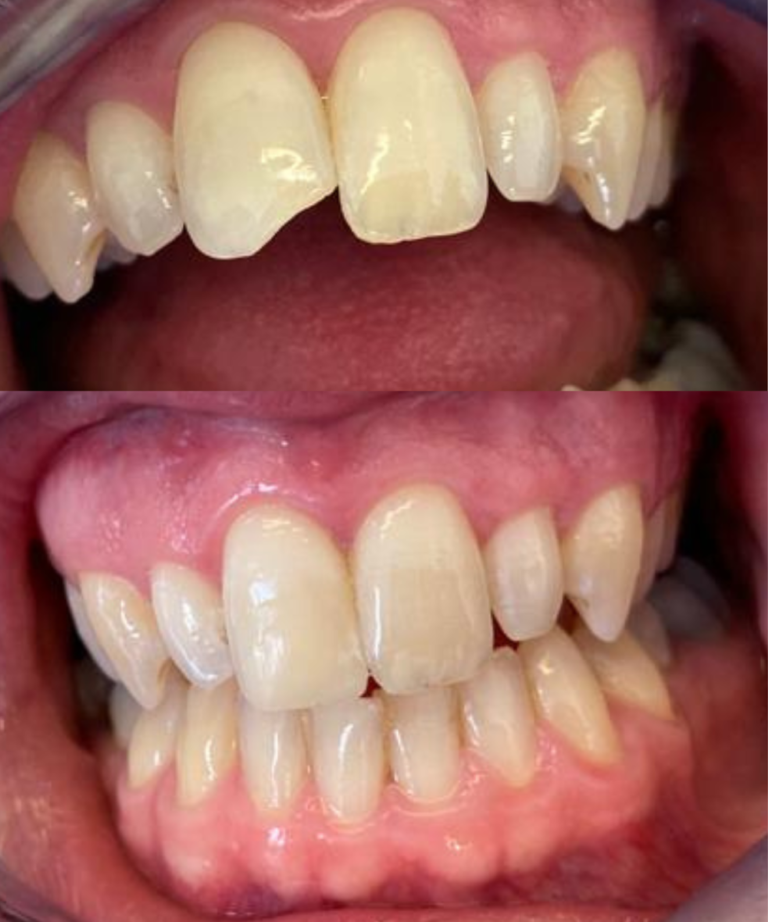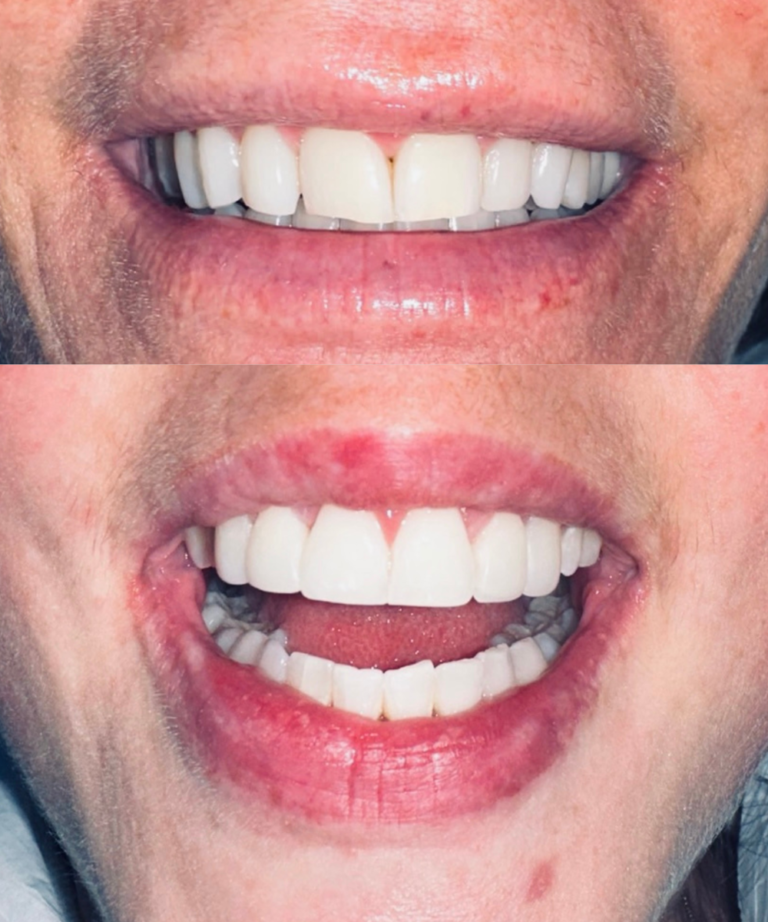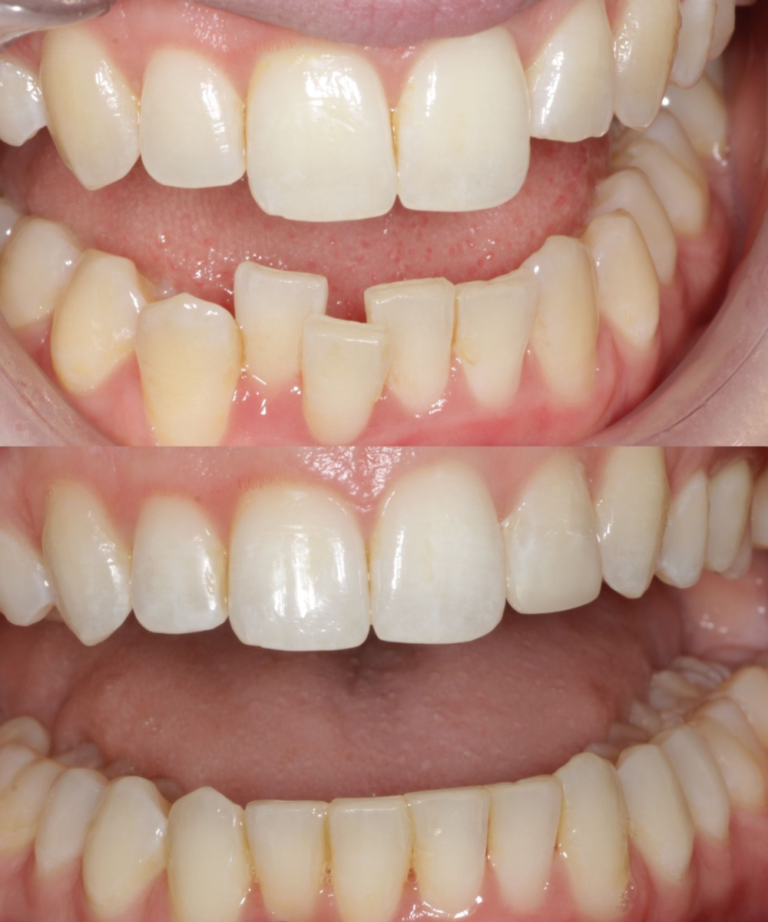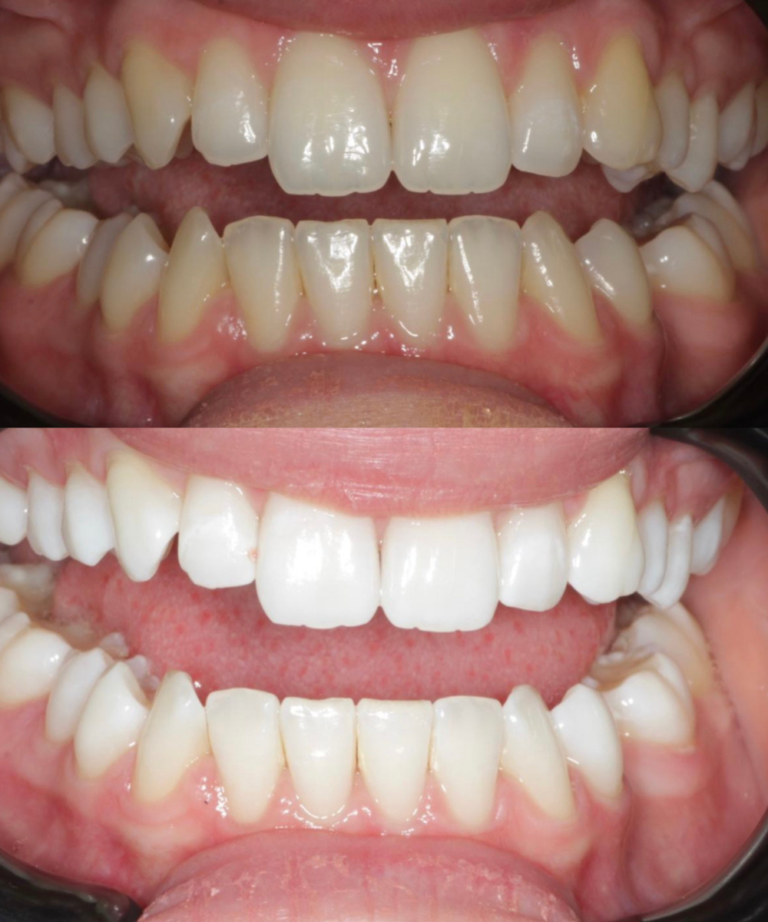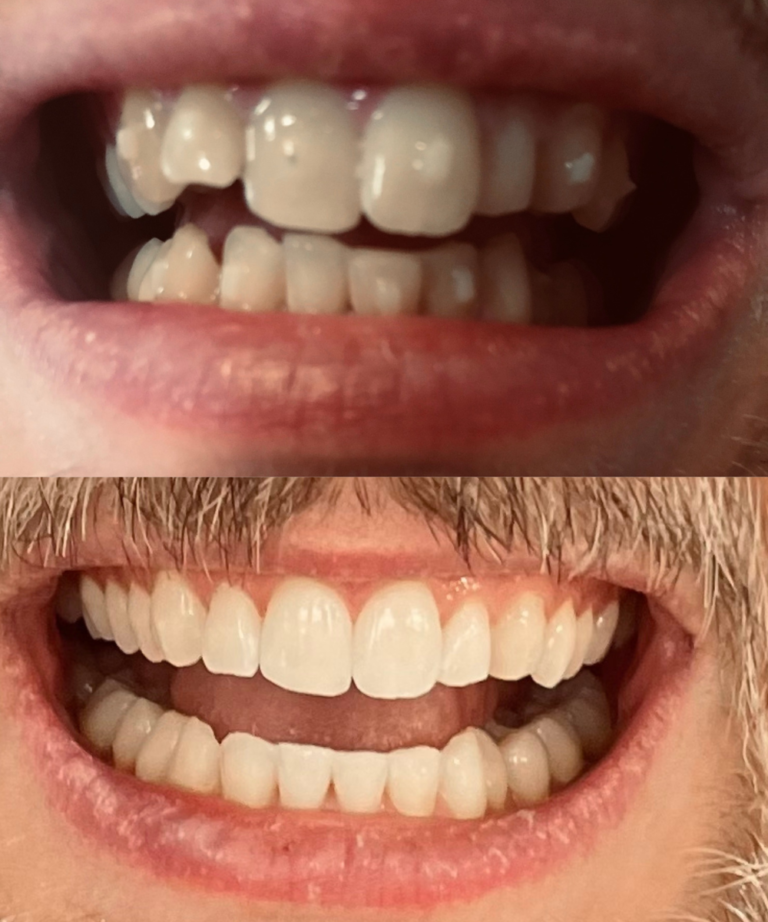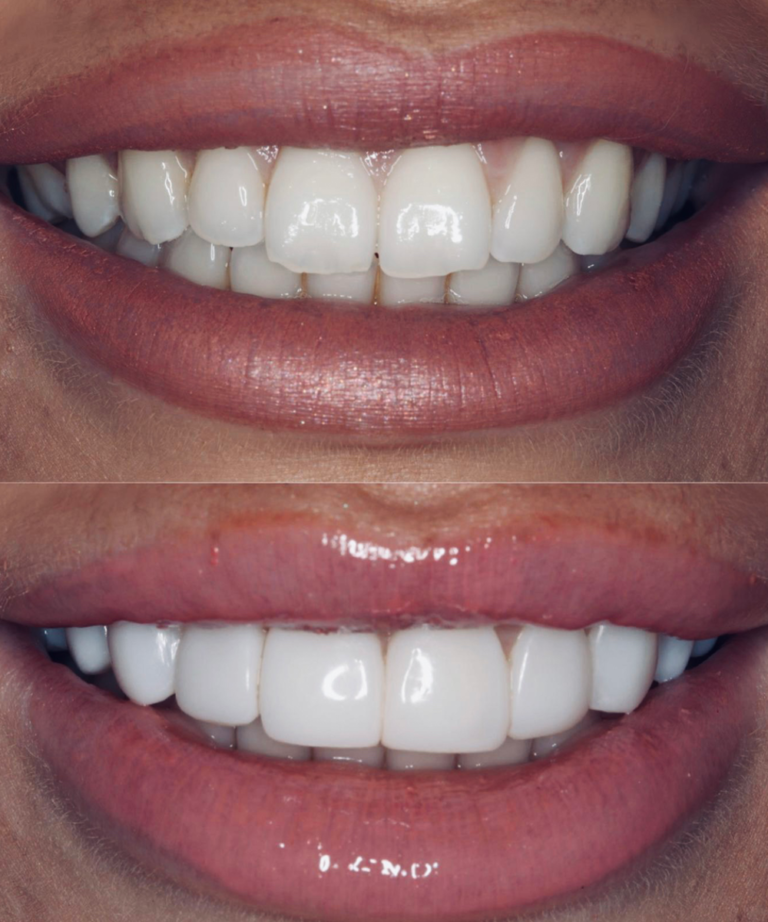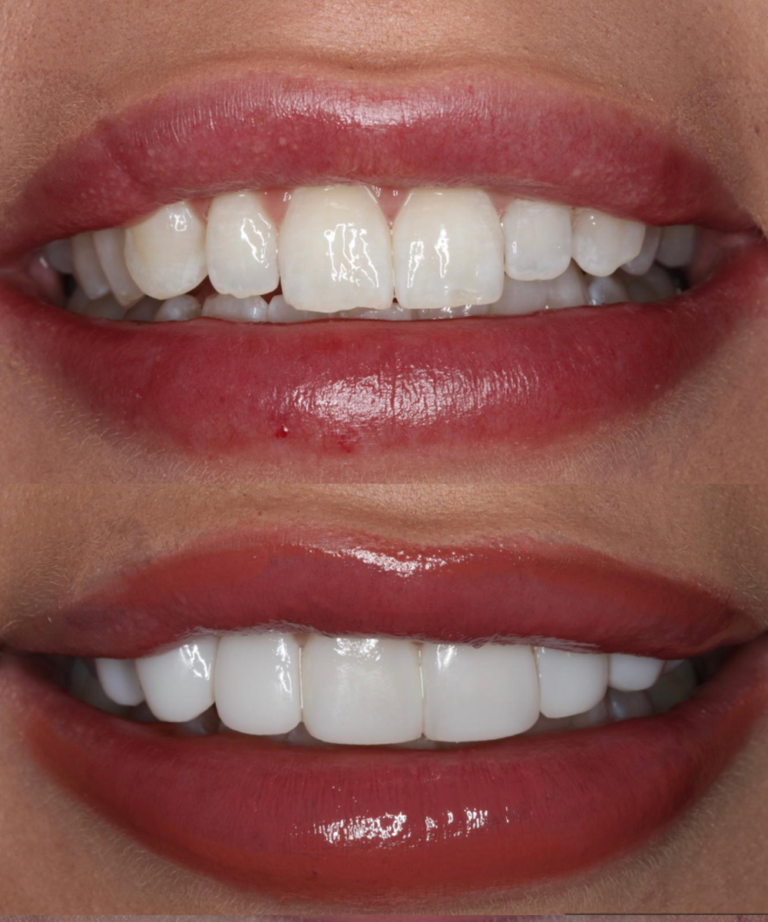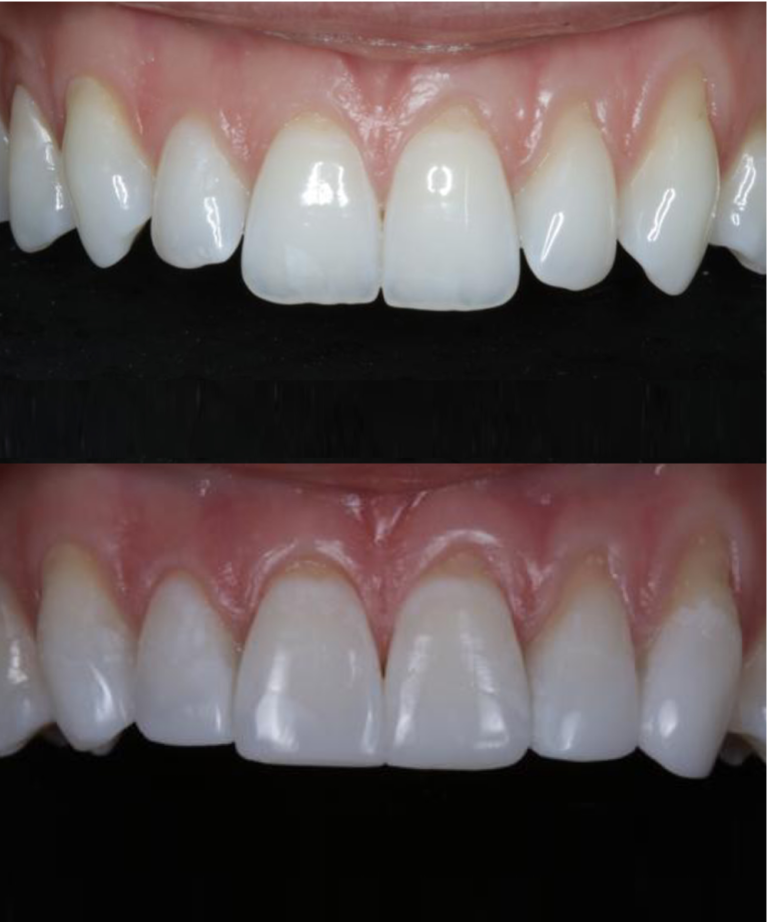Teeth whitening
Tooth whitening, also known as teeth bleaching, is a cosmetic dental procedure aimed at lightening the colour of natural teeth and enhancing their appearance. It is a popular treatment for individuals who wish to achieve a brighter, whiter smile.
Tooth discolouration can occur due to various factors, including ageing, consumption of certain foods and beverages (such as coffee, tea, and red wine), tobacco use, poor oral hygiene, and certain medications. Tooth whitening treatments help to remove stains and restore a more youthful, vibrant appearance to the teeth.
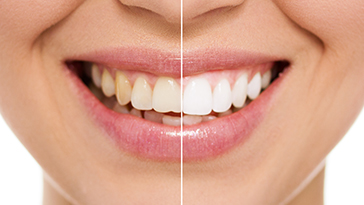
WHAT HAPPENS DURING THE TOOTH WHITENING PROCESS?
Before undergoing any tooth whitening treatment, a consultation appointment is booked to determine the suitability of the procedure for your specific situation. Your dentist will evaluate the condition of your teeth, discuss any potential risks or side effects, and provide guidance on the most appropriate teeth whitening treatment for you.
It’s important to note that tooth whitening treatments are most effective on natural teeth and may not have the same results on dental restorations, such as fillings, crowns, or veneers. In some cases, additional dental procedures may be necessary to match the shade of the whitened teeth with existing restorations. This is the reason a consultation appointment is paramount prior to any treatment.
There are two primary methods of tooth whitening:
At-home whitening: This method involves the use of custom-fitted trays provided by us from a digital scan taken of the teeth at the consultation appointment. The patient fills the trays with bleaching gel and wears them over the teeth for a prescribed period, usually 1 hour a day or overnight, for a designated period of time (normally 2-3 weeks). At-home whitening takes longer to achieve desired results compared to in-office treatment but offers the convenience of performing the procedure at home.
In-chair professional whitening: This procedure is performed by us within the practice. It involves the application of bleaching agents, such as hydrogen peroxide or carbamide peroxide, directly to the teeth. The bleaching agent is typically activated by a specialised light. In-chair whitening produces quick and noticeable results, with several shades of improvement achieved in just one 60-minute visit. The results can be topped up with some home whitening over a couple of days post-treatment, using custom trays and top-up gels provided by us.

Tooth whitening is not permanent, as teeth can become stained or discoloured again over time. Maintenance and touch-up treatments may be required to maintain the desired level of whiteness.
teeth whitening aftercare
After undergoing tooth whitening treatment, it’s important to follow proper aftercare instructions to maintain the results and promote the longevity of your brighter smile.
Here are some essential tips for teeth whitening aftercare:
- Avoid staining substances: For the first 24-48 hours after teeth whitening, it's best to avoid or minimise consumption of staining substances that can undermine the whitening effects. This includes foods and beverages like coffee, tea, red wine, berries, tomato sauce, soy sauce, and tobacco products.
- Be mindful of your diet: Even beyond the initial 48 hours, it's beneficial to be conscious of your diet to prevent staining. Limit your intake of staining substances or rinse your mouth with water after consuming them to minimise contact with your newly whitened teeth.
- Maintain good oral hygiene: Continue to practise excellent oral hygiene habits to keep your teeth clean and healthy. Brush your teeth at least twice a day with a medium soft-bristle toothbrush and fluoride toothpaste. Floss daily to remove plaque and debris from between your teeth. Additionally, consider using a whitening toothpaste to help maintain the whiteness of your teeth.
- Rinse after consuming acidic foods or drinks: Acidic substances can weaken the enamel temporarily, making your teeth more susceptible to staining. After consuming acidic foods or beverages, rinse your mouth with water to help neutralise the acid and minimise its impact on your teeth.
- Use a straw: When drinking beverages that may cause staining, such as coffee, tea, or fruit juices, use a straw to direct the liquid past your front teeth. This can help reduce direct contact between the staining substances and your teeth.
- Avoid tobacco use: Tobacco, whether smoked or chewed, is a major contributor to teeth staining and discolouration. Quitting tobacco use can help maintain the whiteness of your teeth and improve your overall oral health.
- Attend regular dental check-ups: Continue to schedule and attend regular dental check-ups and cleanings. Your dentist can monitor the condition of your teeth, provide professional cleanings, and offer guidance on maintaining your whitened smile.
-
Touch-up treatments, if necessary: Over time, the whiteness of your teeth may fade. We can provide top-up gels, to use with your custom-fitted trays, to maintain the desired level of whiteness.
Remember, the longevity of your teeth whitening results depends on various factors, including your oral hygiene practices, dietary choices, and lifestyle habits. By following these aftercare tips and maintaining good oral health habits, you can enjoy a brighter smile for a longer duration.
tooth whitening frequently asked questions
The safest way to whiten teeth is under the guidance of a dental professional. Professional treatments, whether in-office or a prescribed at-home whitening kit, use approved bleaching agents and include a customised treatment plan. This ensures both effectiveness and safety, minimising risks to your gums and tooth enamel.
Getting your teeth whitened can be worth it if you’re looking for a quick boost in self-confidence due to a brighter smile. It’s particularly beneficial for those who have staining from foods, drinks, or smoking. The results can be immediate and quite noticeable, making it a popular choice for special events or as a way to motivate better oral hygiene.
The cost of teeth whitening varies depending on the type of treatment you choose and the specific requirements of your case, such as whether you opt for in-office whitening or at-home methods. Since each option involves different levels of professional involvement and materials, the prices can vary. For a precise estimate that matches your needs and to discuss available payment plans, it’s best to get in touch with us directly.
Whitening treatments can sometimes lead to temporary tooth sensitivity, especially in individuals with pre-existing conditions like gum recession or thin enamel. However, using products designed for sensitive teeth and following your dentist’s instructions can help minimise discomfort. Sensitivity typically diminishes a few days after completing the treatment.
When used as directed by a dental professional, teeth whitening products are unlikely to damage tooth enamel. Problems can arise if products are overused or applied incorrectly. It’s important to follow the recommended guidelines and durations for any whitening treatment to protect your enamel and overall dental health.
Yes, you can use whitening toothpastes as a simple and convenient way to help reduce surface stains and make your teeth appear slightly whiter. They are generally safe for daily use but it’s important to note that the effects of whitening toothpastes are usually modest compared to professional whitening treatments. Whitening toothpastes may help your professional teeth whitening last longer, but it’s best to speak to your dentist to make sure.
